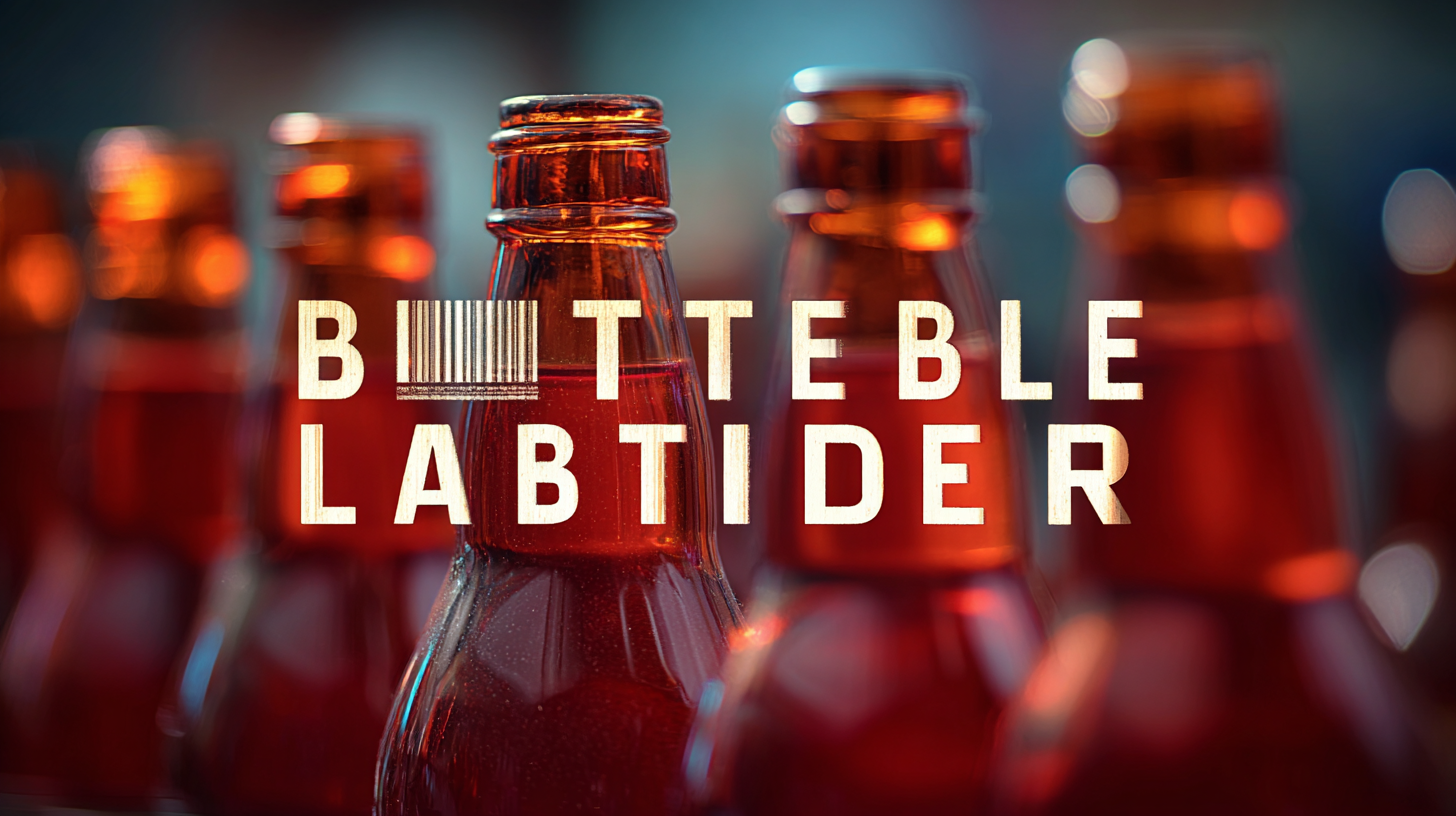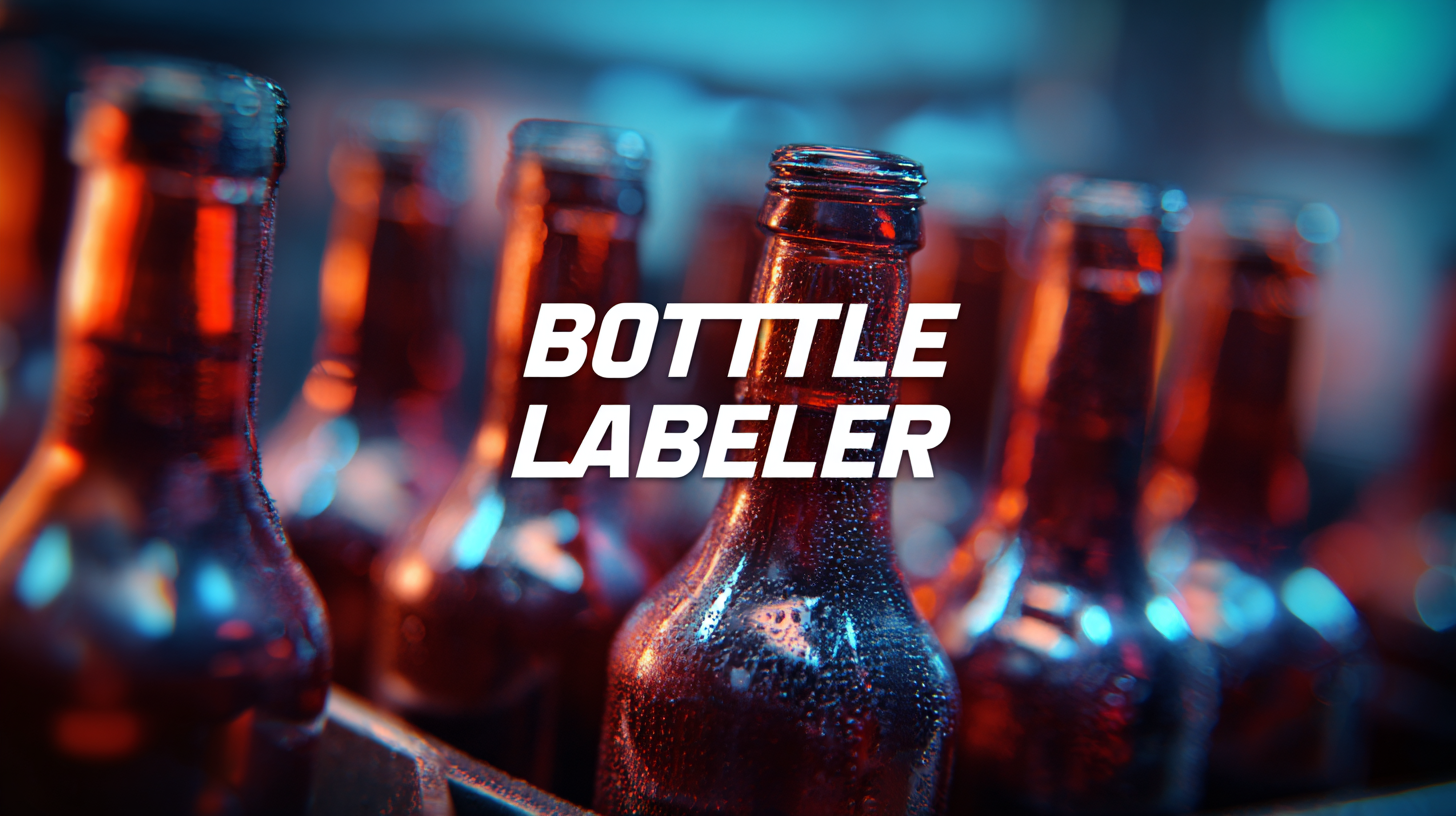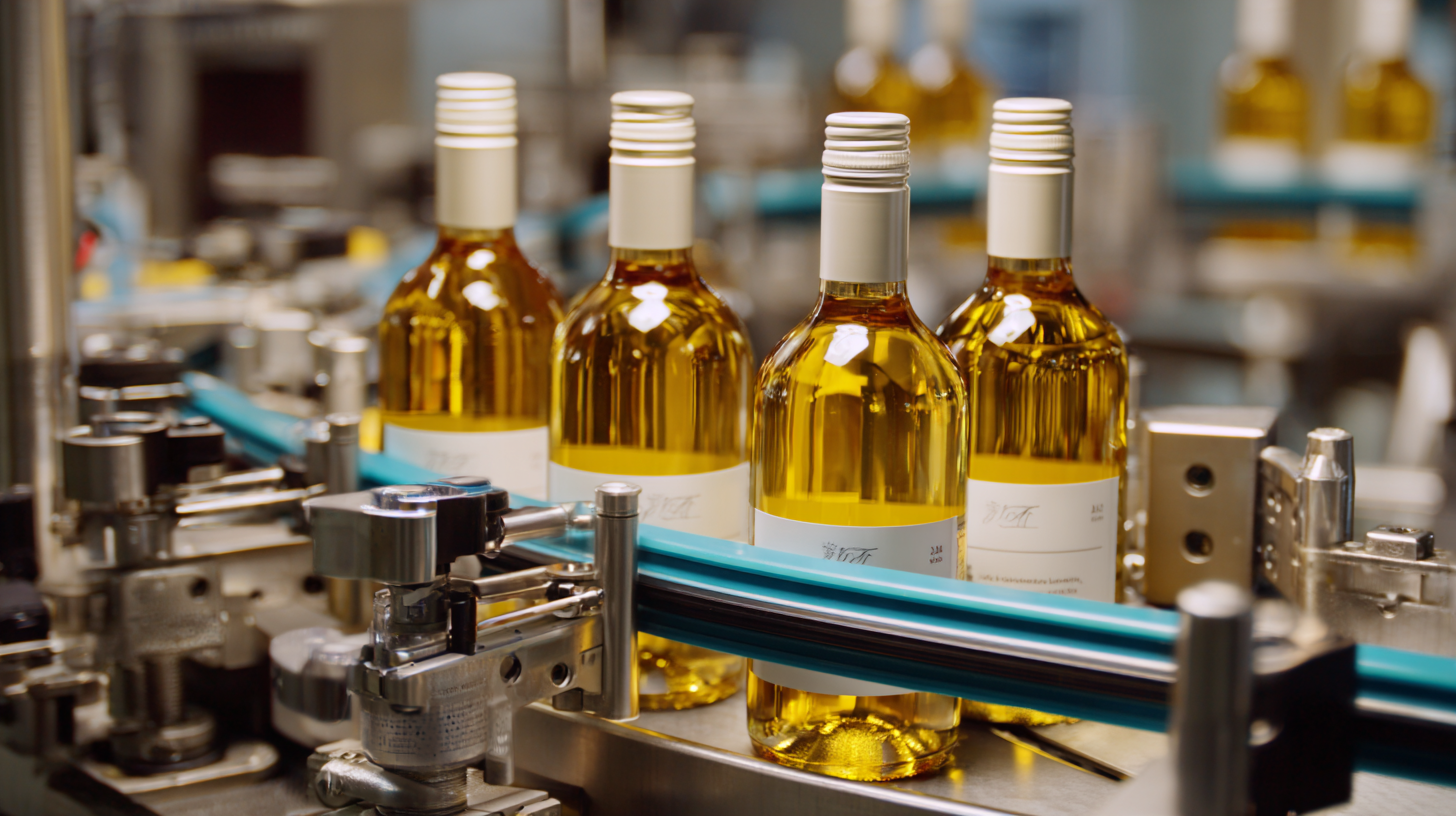In today's fast-paced manufacturing environment, the efficiency and accuracy of production processes are of paramount importance, especially in industries like beverages, cosmetics, and pharmaceuticals. A recent report by Smithers Pira highlighted that label production accounts for nearly 10% of total operational costs, emphasizing the need for optimization in this area.
 Enter the Bottle Labeler, a crucial tool that not only streamlines labeling operations but also enhances overall production accuracy. With advancements in technology, modern bottle labelers now offer unparalleled precision, reducing errors and waste while accelerating throughput. As businesses seek to improve their bottom line, investing in the best bottle labeler can lead to significant returns in productivity, making it an essential consideration for manufacturers aiming to stay competitive in a rapidly evolving market.
Enter the Bottle Labeler, a crucial tool that not only streamlines labeling operations but also enhances overall production accuracy. With advancements in technology, modern bottle labelers now offer unparalleled precision, reducing errors and waste while accelerating throughput. As businesses seek to improve their bottom line, investing in the best bottle labeler can lead to significant returns in productivity, making it an essential consideration for manufacturers aiming to stay competitive in a rapidly evolving market.
Effective bottle labeling is a crucial element in the production process that directly impacts efficiency and accuracy. In fast-paced manufacturing environments, precise labeling ensures that products are easily identifiable, reducing the chances of errors that can lead to costly recalls or rework. A well-designed labeling system enhances the workflow by allowing for quicker turnaround times and seamless integration with inventory management systems. By minimizing the time spent on manual labeling, companies can redirect their resources towards more critical operational tasks, boosting overall productivity.
Moreover, accurate labeling plays a vital role in maintaining compliance with industry regulations. Mislabeling can result in legal issues and damage to a company’s reputation. Automated bottle labelers not only improve accuracy but also ensure that labels contain the most up-to-date information, including barcodes and nutritional data. This precision helps in streamlining supply chain logistics, as retailers and consumers require precise information to drive their purchasing decisions. In today’s competitive market, leveraging advanced labeling technology becomes essential for manufacturers striving to enhance their production efficiency and deliver consistently quality products.
This chart represents the impact of different labeling efficiencies on overall production accuracy. The data demonstrates how enhanced labeling processes can significantly improve production workflows.
When selecting the best bottle labeler for your production line, several key features can significantly enhance both efficiency and accuracy. One of the most critical attributes is the labeling speed. According to a report from the Packaging Machinery Manufacturers Institute (PMMI), modern labelers can achieve speeds of up to 200 bottles per minute, drastically reducing bottlenecks in high-volume production settings. High-speed labeling not only improves throughput but also minimizes labor costs associated with slower, manual labeling processes.
Another essential feature to consider is the adaptability of the labeler for different bottle shapes and sizes. A versatile labeler can accommodate various container types without requiring extensive reconfiguration, which can reduce downtime. Research indicates that manufacturers using adjustable labelers can reduce changeover time by up to 50%, enhancing overall operational efficiency. Additionally, accuracy is paramount; advanced bottle labelers equipped with sensors and cameras ensure that labels are applied consistently and correctly, reducing the risk of product recalls and increasing customer satisfaction.

Investing in a high-quality bottle labeler with these features can lead to significant improvements in production reliability and market competitiveness.
When it comes to bottle labeling, manufacturers often face a crucial decision: manual versus automatic labelers. Manual labelers might seem cost-effective at first, especially for small-scale operations. However, they can lead to significant inefficiencies and inconsistencies in labeling, which can ultimately affect the overall production quality. Employees may struggle with the tedious task of aligning labels correctly, leading to misplacement and wastage of materials.
On the other hand, automatic bottle labelers offer enhanced efficiency and accuracy. With advanced features that minimize human error, these machines ensure that every bottle is labeled consistently and correctly. As production lines become increasingly automated, businesses can streamline their operations, reducing labor costs and improving throughput. Moreover, the integration of sensor technology and deep learning in automated labeling systems allows for real-time adjustments and improvements, adapting to various bottle shapes and sizes effortlessly.
This not only saves time but also aligns with sustainability efforts as companies produce less waste, a crucial factor in the ongoing battle against plastic pollution.
When evaluating the cost-effectiveness of the best bottle labelers, it’s essential to consider both short-term and long-term benefits. According to a recent industry report by Smithers Pira, automating the labeling process can reduce labor costs by up to 30%, highlighting a significant immediate financial advantage. In the short term, businesses can experience a lower overhead with quicker production speeds, as well as a reduction in human error, allowing for consistent labeling that enhances brand integrity.
Tips for organizations looking to invest in labelers include assessing their production scale. For small to medium-sized operations, a semi-automated labeler may provide the necessary balance of efficiency and affordability. Conversely, larger manufacturers might benefit more from fully automated solutions that, while initially costly, can yield substantial savings over time by increasing output and minimizing waste. A study by Freedonia Group indicates that companies that invest in high-quality labeling systems see a return on investment within 18 to 24 months, further reinforcing the importance of long-term planning in budget considerations.
Ultimately, while the initial purchasing decision is crucial, a comprehensive evaluation of both the short-term savings and long-term advantages will ensure that businesses select the best bottle labeler to meet their production needs effectively. By taking into account operational demands and future scalability, companies can enhance their efficiency and accuracy in production while optimizing costs.
In today’s competitive market, the implementation of advanced bottle labeling systems has transformed production lines, providing substantial benefits in efficiency and accuracy. For instance, a report by Research and Markets indicates that the global labeling equipment market is projected to reach $5.6 billion by 2025, driven by the increasing demand for automation and the need for precise labeling in various industries. Companies that have integrated these systems have experienced significant improvements in their operations.
Real-world applications showcase the tangible success of these labeling systems. A notable example comes from the beverage industry, where a leading bottled water manufacturer adopted an automated labeling solution that reduced labeling errors by over 30%. This enhancement not only streamlined their production process but also improved product shelf appeal, leading to a 15% increase in sales within the first quarter post-implementation. Furthermore, a study from the Food and Beverage Association highlights that 75% of companies that invested in modern labeling technology saw a reduction in labor costs and an increase in overall production output, further illustrating the importance of efficient label application in boosting business performance.

Headquarters
2980 Scott St, Vista, CA 92081
Phone: (760) 734-4177
Fax: (760) 734-4188
Open: 8:00 am – 4:30 pm
Texas
8051 Jetstar Dr #175 Irving, TX 75063
Phone: (972) 915-6888
Fax: (972) 915-6999
Open: 8:00 am – 4:30 pm
Florida
14231 Jetport Loop. #1 Fort Myers, FL 33913
Phone: (239) 225-4020
Fax: (239) 225-4024
Open: 8:00 am – 4:30 pm